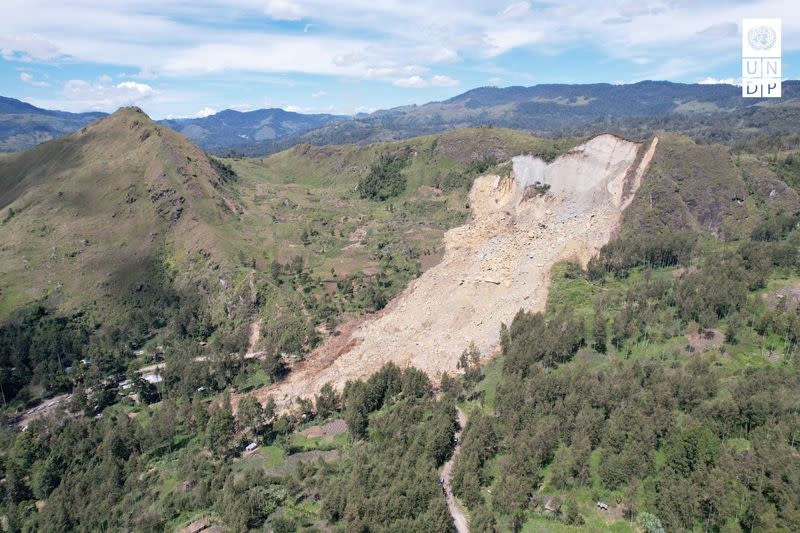Papua New Guinea leader visits community hit by landslide

SYDNEY (Reuters) -Papua New Guinea (PNG) Prime Minister James Marape on Friday made his first visit to a remote village hit by a deadly landslide last week and thanked international aid donors for their support.
Officials are still trying to pinpoint how many people are buried under parts of a mountain which collapsed onto the Yambali village in the Enga region a week ago.
More than 2,000 people may have been buried alive, according to the PNG government. A U.N. estimate put the death toll at around 670.
Marape apologised to residents for not visiting earlier, The Papua New Guinea Post Courier reported.
"I'm sorry," Marape was cited as saying. "The country is with you in your time of sorrow."
He has pledged 20 million kina ($5.1 million) for emergency response and initial recovery measures.
Marape also inspected the disaster site by helicopter, the United Nations migration agency said.
Heavy equipment and aid have been slow to arrive because of treacherous terrain and tribal unrest in the area. As of Thursday, PNG government officials had ruled out finding survivors under the rubble and said that they would shift their focus onto recovering bodies.
"The priority now is twofold: safe search operations to be carried out as soon as possible while addressing the immediate needs of the affected and displaced population," Richard Howard, the U.N. Resident Coordinator in Papua New Guinea, told reporters via video link from Port Moresby.
The U.N. migration agency said the disaster site will be quarantined by PNG authorities after 14 days and access will be restricted in a bid to prevent the spread of diseases from decaying bodies.
The United Nations has said water flowing under the debris had contaminated the village's water sources. Those who remain undiscovered will be declared missing, the agency said.
($1 = 3.9479 kinas)
(Reporting by Renju Jose and Stella Qiu in Sydney; Additional reporting by Gabrielle Tétrault-Farber in Geneva; Editing by Stephen Coates and Sharon Singleton)


